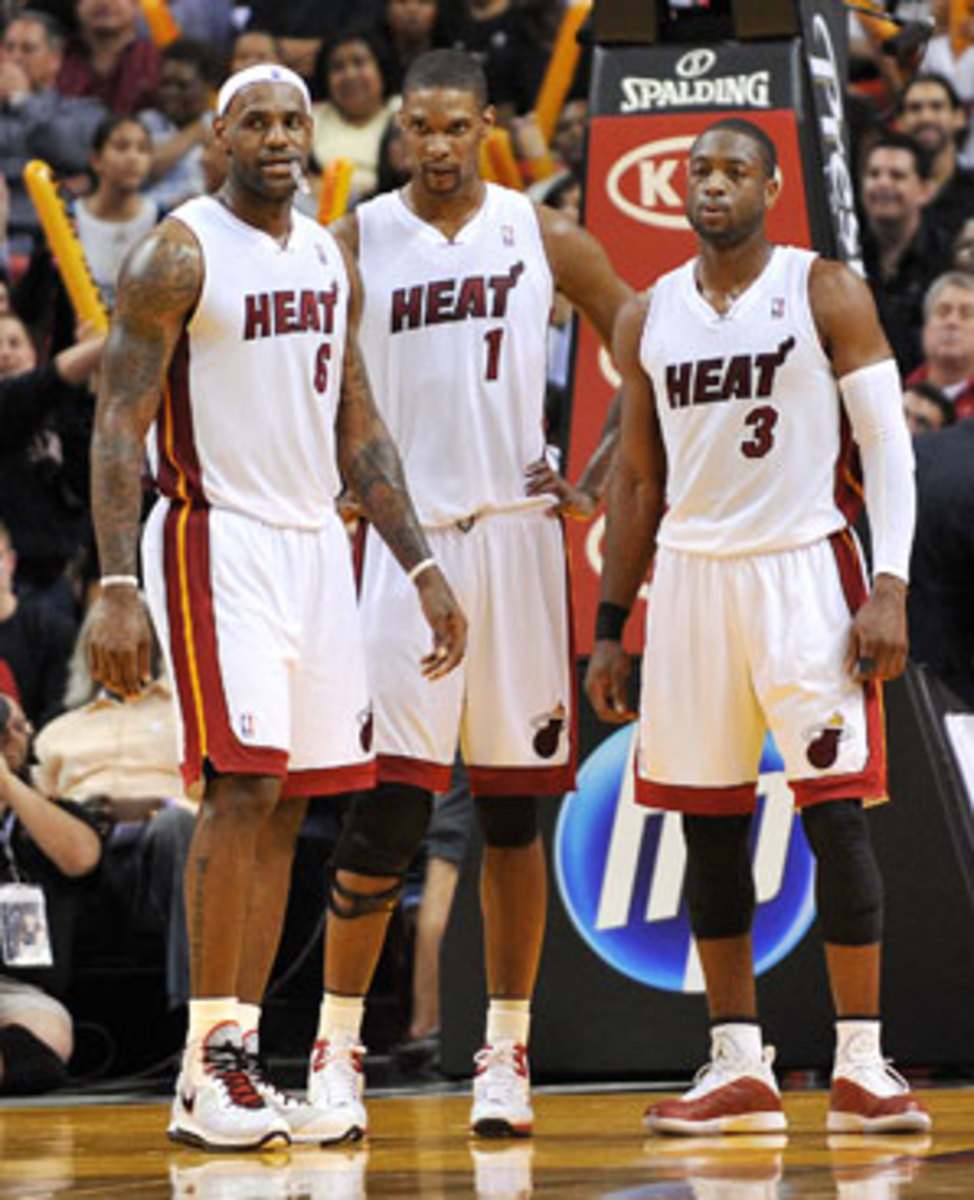
NBA lacking logic in CBA talks
And if you thought the union director's mood after Wednesday's four-hour meeting in Miami was pleasant, just imagine how happy he might have been if he hadn't been tweaked by league officials the day before.
While addressing the media with commissioner David Stern before Game 1 of the Finals, deputy commissioner Adam Silver went off script in the most subtle of ways when he used the cases of Heat stars LeBron James, Dwyane Wade and Chris Bosh to make the point that the current system must be fixed.
"The built-in [annual] increases of our contracts are much higher than inflation and the growth in our business," Silver said. "For example, the three key players on the Heat all have 10.5-percent-per-year increases built into their deals for next year, at a point when revenues in our business are growing somewhere around 3 percent. It's a broken system."
More like broken logic.
Love them or hate them, no one is driving more revenue the NBA's way right now than the Heat trio. And while the league's claim that 22 of the 30 teams will lose a combined $300 million this season certainly indicates the need for change, asking for handouts from the game's elite is the wrong approach.
The irony of Silver's comment is that the owners are pursuing a system in which the stars continue to receive star treatment while the so-called middle and lower class of players with far less efficient contracts take the biggest financial hit. The mid-level exception, for example, is considered by most owners to be the scourge of the current CBA and is likely to be eliminated if they get their way.
Taking aim at a player like Eddy Curry would have been fair game. The former New York center made $10.5 million by playing the part of a vegetable when he wasn't playing in seven games during the 2009-10 season. According to a Wall Street Journal study published just before the James-driven free-agent frenzy began last July, metrics that measure a player's worth by comparing his salary to his impact on success dictated that Curry should have owed the Knicks $1.3 million. But the cream of the NBA crop are delivering bang for their bucks -- no one more so than James.
In terms of basketball alone, the report stated that James should have been paid about $43 million annually based on his last season in Cleveland. Wade was valued at $29.4 million for 2009-10, and Bosh at $20.5 million.
As it was, all three players took less than the maximum salary allowed in order to play together, with James and Bosh earning $14.5 million in the first year of their six-year deals while Wade came in at $14.2 million. And that was before the business side was even taken into account.
The impact began last summer, when season-ticket sales in cities that were on James' possible list of free-agent destinations saw significant spikes despite the uncertainty about where he would eventually land. The "Heatles," as James dubbed the hoops rock stars during the season, led the league in crowds on the road (an average of 19,447) while captivating the masses in record-breaking numbers on local and national television all season long.
That trend continued on Tuesday, when the rating of 9.0 was the largest draw for a Finals Game 1 since 2004 (Lakers-Detroit, 9.8). The game outdrew last year's Game 1 between the Lakers and Boston (8.6) and the Miami-Dallas Finals opener in 2006 as well (7.8). One industry source estimates that James and Wade will drive about $800 million in retail sales (jerseys, posters, etc.) this season.
Assessing the value of these latest labor meetings, meanwhile, isn't so easy. Sources close to the talks say the NBPA's latest written proposal included concessions that had already been verbally offered at a bargaining session in New York last week.
One source characterized the concessions as "something that moves a little toward [the owners'] position." The owners continue to push for a hard salary cap of approximately $45 million, but have proposed a two-year phase-in period in order to help with the drastic transition. The two sides are scheduled to meet again in Dallas on Tuesday and Wednesday.
From this corner of the hoops universe, here's to hoping that these intense talks are completely genuine. Because the NBPA filed an unfair labor practices charge against the league on May 24, both sides must appear to be negotiating in good faith even if that's not truly the case. With one month to go, we'll know soon enough if Hunter's hope floats or if next season is about to start sinking.




